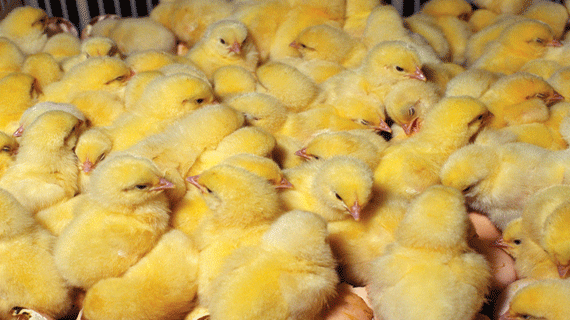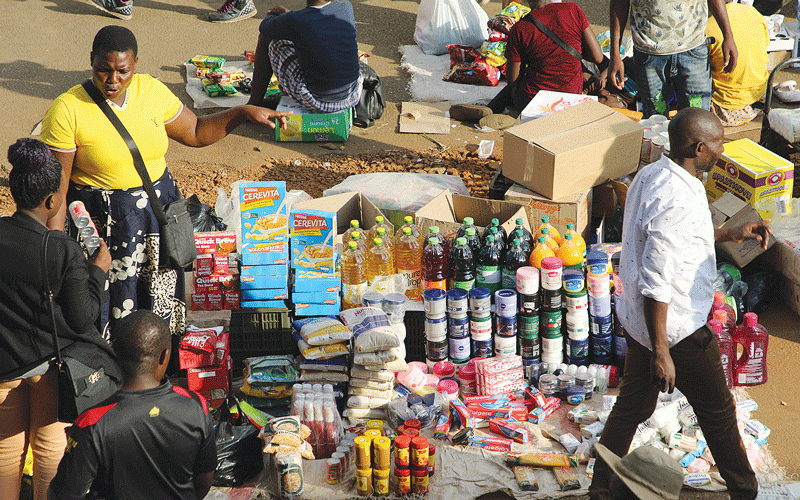
SEVERAL households and organisations are presently engaged in urban poultry projects in desperate attempts to supplement their meagre incomes in light of the harsh economic environment.
Gamma Mudarikiri OWN CORRESPONDENT
A Bulawayo-based firm Drummond Ranching (Pvt) Ltd has seized the initiative and has been assisting small-scale farmers in and around Bulawayo by supplying them with day-old chicks, feed and vaccines.
Southern Eye Business correspondent Gamma Mudarikiri (SE) yesterday caught up with Drummond Ranching livestock and poultry director Kim Drummond (KD) to discuss the firm’s projects with small-scale chicken farmers. Below are excerpts:
SE: Your firm supplies small-scale farmers with day-old chicks. Can you shed more light on the project with regards the arrangement with the beneficiaries and how you recoup your money?
KD: We have been involved in trying to assist small-scale farmers to grow chickens in a responsible manner by ensuring that the birds are slaughtered at registered abattoirs and marketed formally. There was a problem with informal slaughter and trade of chicken meat last year which had potential health risks for the Bulawayo community.
It is important that chicken farmers are always vigilant when it comes to proper slaughter, freezing, storing and distributing of their products.
The Chicken Raisers’ Association based in Bulawayo has been involved in the facilitation of the project. Drummond Ranching finances the chicks, feed and vet-medication.
- Chamisa under fire over US$120K donation
- Mavhunga puts DeMbare into Chibuku quarterfinals
- Pension funds bet on Cabora Bassa oilfields
- Councils defy govt fire tender directive
Keep Reading
The growers then look after them and when the batch is finished, the birds are collected, slaughtered and marketed through our distribution chain.
The growers are compensated in a set number of live birds per batch that they place, which can be kept for their own consumption or Drummond Ranching buys them back at the market price prevailing at the time.
SE: How many chicks do you give per beneficiary?
KD: The growers were taken in accordance with their chicken run capacity — in total close to 20 000 birds to date.
SE: For how long have you been running the project and how many people have benefited so far?
KD: Many households have benefitted and it has been running since October 2013.
SE: What are the challenges you are facing as the project progresses?
KD: There are many challenges when projects like this begin so it will take time to perfect the model further. In theory it works well as it is just a case of getting everything right.
It is important that Zimbabweans are proud of themselves and their country and are willing to work hard. We are a capable country and need to remember that nothing comes for free.
SE: We understand you scaled down operations during the beginning of the year. Why is that so?
KD: This time of the year is always slow, once schools open in January and the festive season comes to a close, sales are much less. At the same time maize is very expensive at the moment which makes the feed expensive, with low sales and high costs it is not viable to continue over this period. Margins are extremely small, so one has to be cautious at all times.
SE: What is your general assessment of the Zimbabwe poultry sector performance in 2013 and what is the outlook for this year?
KD: The poultry industry as a whole is very strong and has grown enormously in recent years since imports of chicken products have been controlled. There have been huge expansions of abattoirs, hatcheries and growing farms throughout the country which is very positive.
I expect that it will continue to be an expanding industry in 2014 provided imports are controlled so as not to flood the market with cheap products from South Africa and overseas.
I think added growth would occur if the importation of other meat and poultry products such as mechanically deboned meat was also controlled more strictly.
SE: Since you indicated that you will be suspending the project of giving farmers chicks next week, is there any other similar project you will introduce in 2014?
KD: We will see how the market looks in a few months’ time. The poultry industry is cyclical with ups and downs and it is a case of always being able to remain competitive and adapting accordingly. For this reason it is difficult to say exactly what we will be doing in a few months’ time with regards small-scale outgrowing projects.










